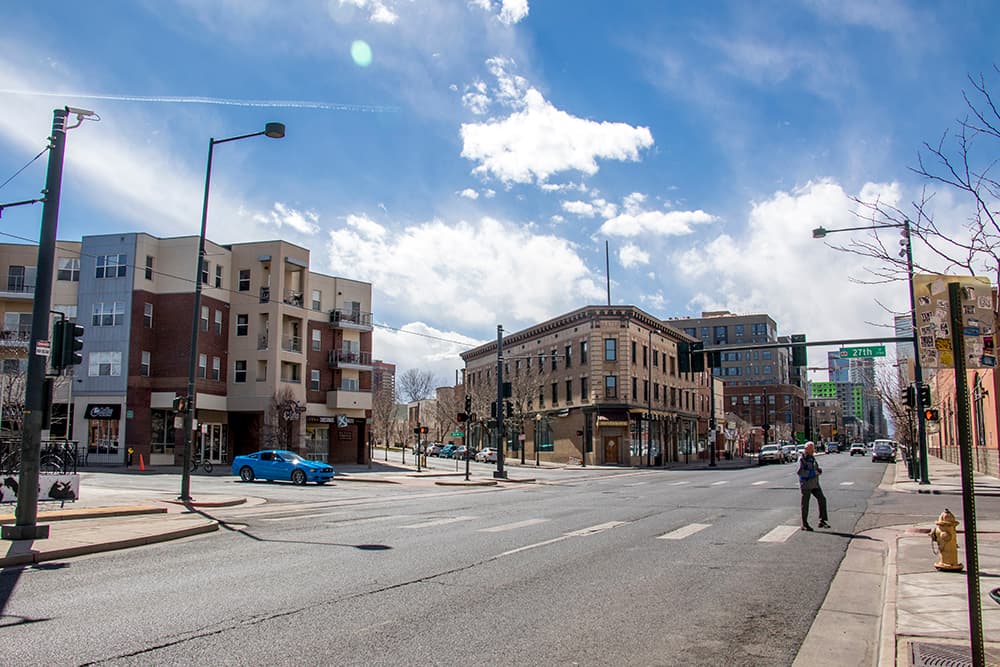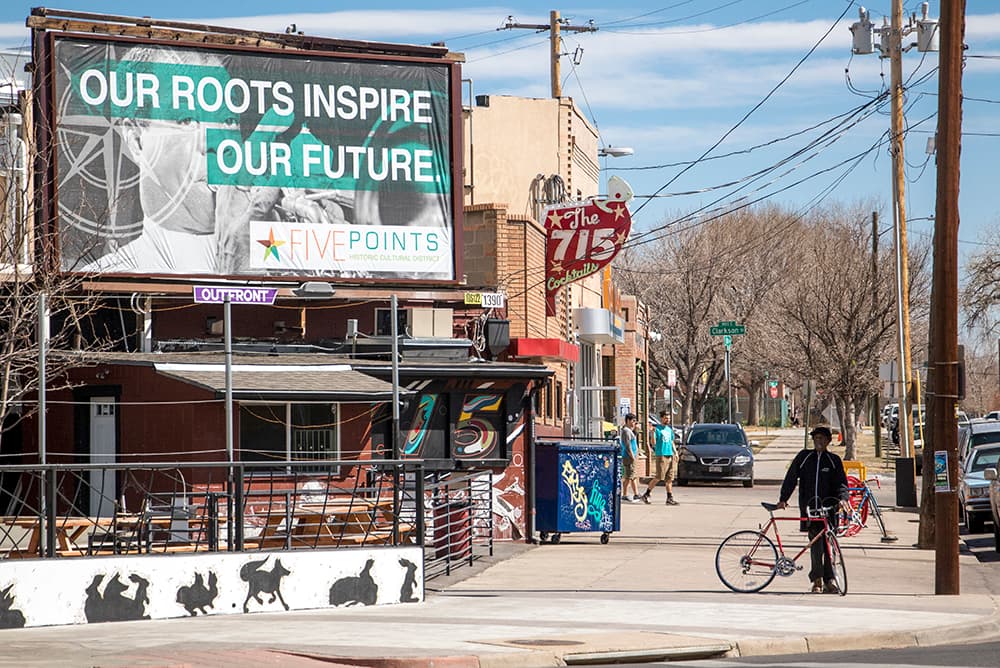
As gentrification sweeps across Denver, few places show it quite like Welton Street in Five Points, where the tension between the neighborhood's history and new development is on prominent display along one strip.
On its face, gentrification is simply an economic function, the physical manifestations of investment and development in an underserved area. These changes however are not purely cosmetic and can come with a host of consequences that disproportionately affect minorities and low-income folks — people who typically reside in areas primed for heavy gentrification.
On Welton Street, gentrification has transformed a once predominantly black residential area into a luxury apartment-lined strip longtime residents can hardly recognize. The demographics in the area have changed nearly as quickly as the structures themselves.
“In 2010, this area, 80205, was one of the fastest gentrifying zip codes in the country. For the first time, more white babies were born there than African American babies,” City Council President Albus Brooks said.
Five Points native and longtime Welton Street tenant Brother Jeff Fard is clear about his thoughts on gentrification.
“Gentrification is a conspiracy between policymakers, developers and business interests," he said. "It’s the repurposing of land in neighborhoods. That repurposing does not include low- and medium-income people. There’s more focus on developers and development, less focus on vulnerable populations and people.
“People talk about less desirable individuals of a community, but they totally miss the fact that ordinary individuals can not live here either. For example, a teacher and a policeman cannot qualify to live in this neighborhood.”
For Jacquelyn Logan, owner of Neat Stuff at the Black Market, change itself isn’t the problem, but rather how it's taking place.
“So in the last five years the biggest change is there's housing from here all the way down. We were surrounded by parking lots previously," she said. "I have no objection to white people, but I just don’t want it to be all of them, I want a mix. It's just the whole neighborhood which is being taken over by a completely different group of people.”
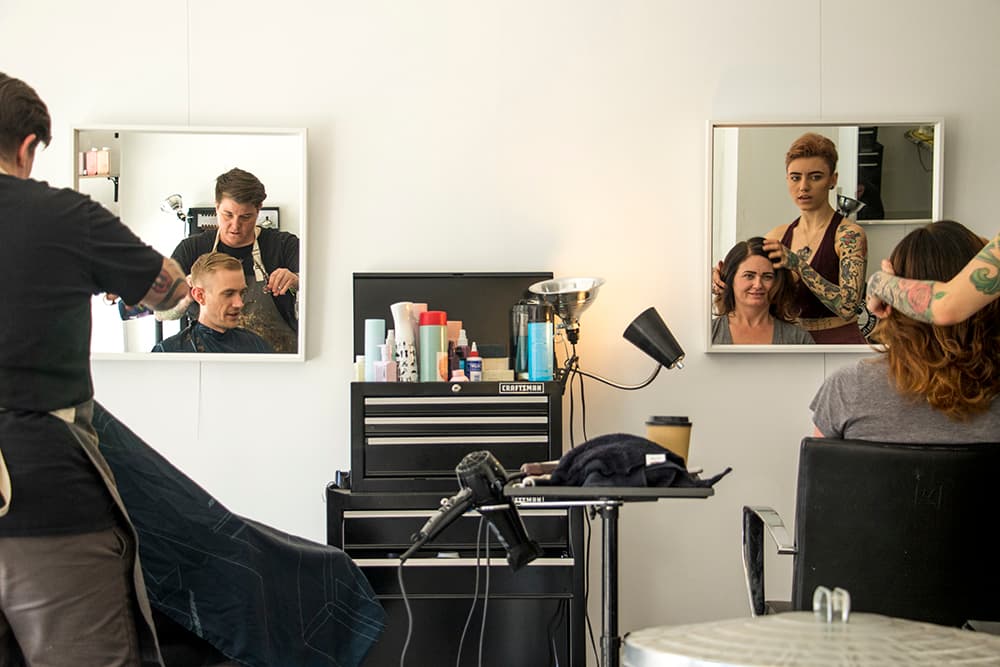
Welton Street's residents have changed. Will the businesses follow suit?
The rapid changes on Welton Street are forcing local businesses to adapt quickly or relocate. Despite the demographic changes in the area, according to Brooks, 50 percent of the parcels on Welton Street are currently owned by black people.
Some of those businesses are struggling with the neighborhood’s changes, while others seem to be prospering in the new climate.
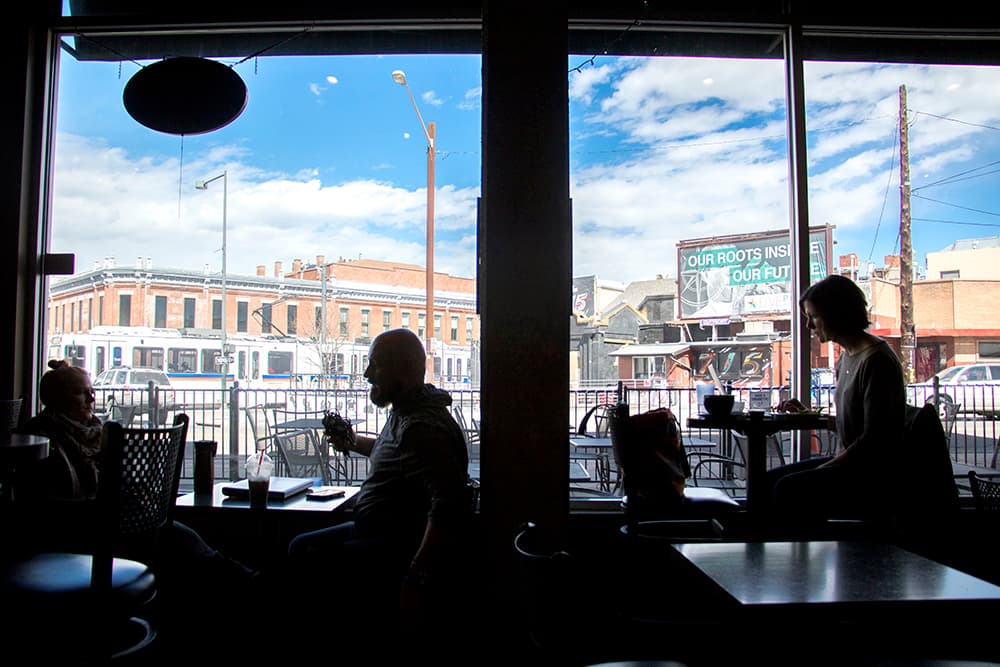
Businesses like Coffee at the Point have significantly benefited from an influx of younger, wealthier people, as coffee shops tend to prosper in neighborhoods with higher average rent prices.
“For us, we’ve seen the uptick since we’ve started seeing the area growing," said Ryan Cobbins, the shop's owner. "For coffee, it's disposable income. We tailor things to a growing market as well. What we do now is different from what we did seven years ago.”
A couple blocks north on Welton, Franklin Stiger Afro Styling has been able to stand the test of time largely because of a client base that has supported the business since the early '80s. Franklin Stiger’s experience cutting all types of hair makes his skillset viable no matter who’s in the neighborhood.
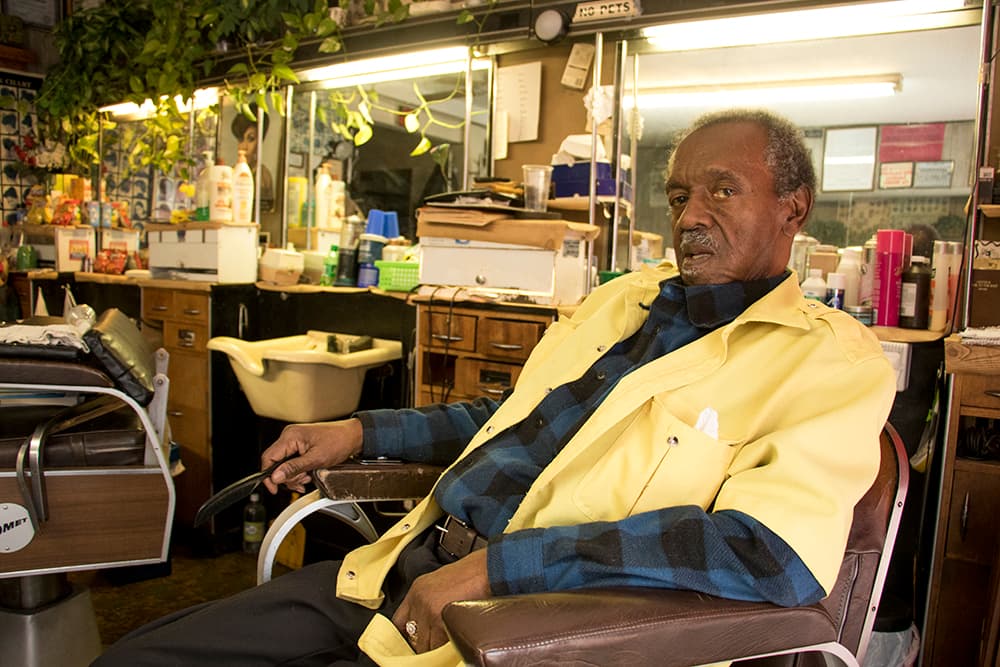
Neat Stuff at the Black Market will have to do a little more than tinkering with their product lineup to appeal to a different audience. The bodega, situated right across the street from a large apartment building under construction, is currently filled with niche items primarily targeted for black people.
“I think one of the things that I’m going to have to do if I want to appeal to this community now is change the kind of stuff I do, the kind of stuff I sell," Logan said. "Black people can still come here for shea butter and black soap, but I am going to have to change things around.”
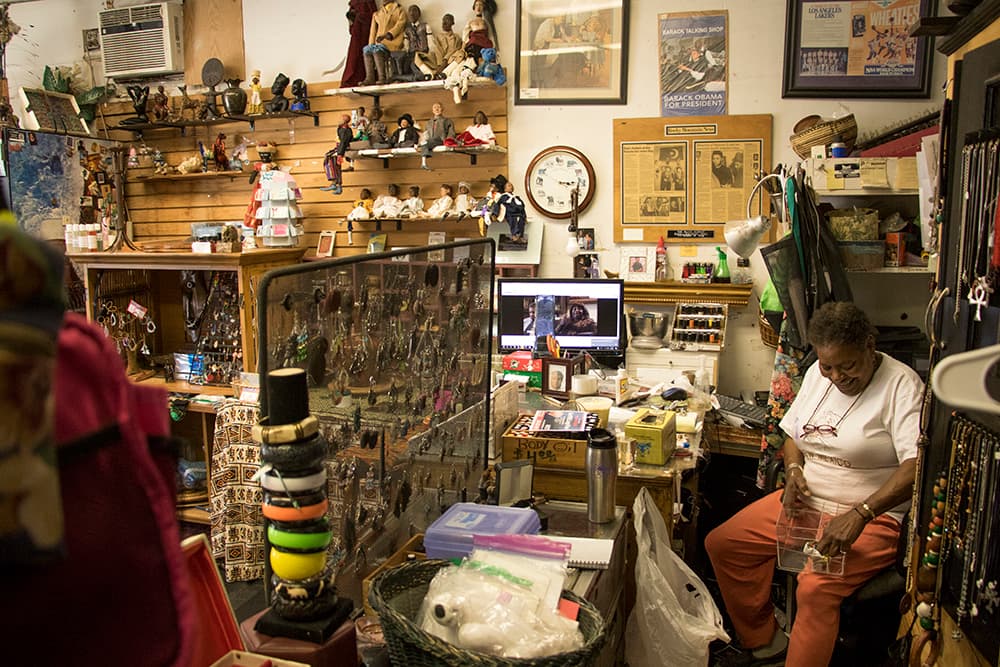
Brother Jeff’s Cultural Center is feeling the ramifications of the demographic shift. He's purposefully set up his space to craft a welcoming place for black people to “rest their souls.” Fard is a longtime community organizer and businessman who has prided himself on standing up for the “little guy,” and as the neighborhood becomes better suited for those closer to the upper end of the socioeconomic ladder, he’s watched as many of his regular attendees are forced to move away from the area.
Fard saw these disruptive changes coming years ago, but feels a misunderstanding of what “progress” would mean down the line left his community vulnerable.
“When two banks were placed in our community that have a history of redlining and denying black people loans," he said, referring to Wells Fargo and U.S. Bank, "when schools closed and education became profitable, there was no one there to really sound the alarm. Now we see the outcome of this.”
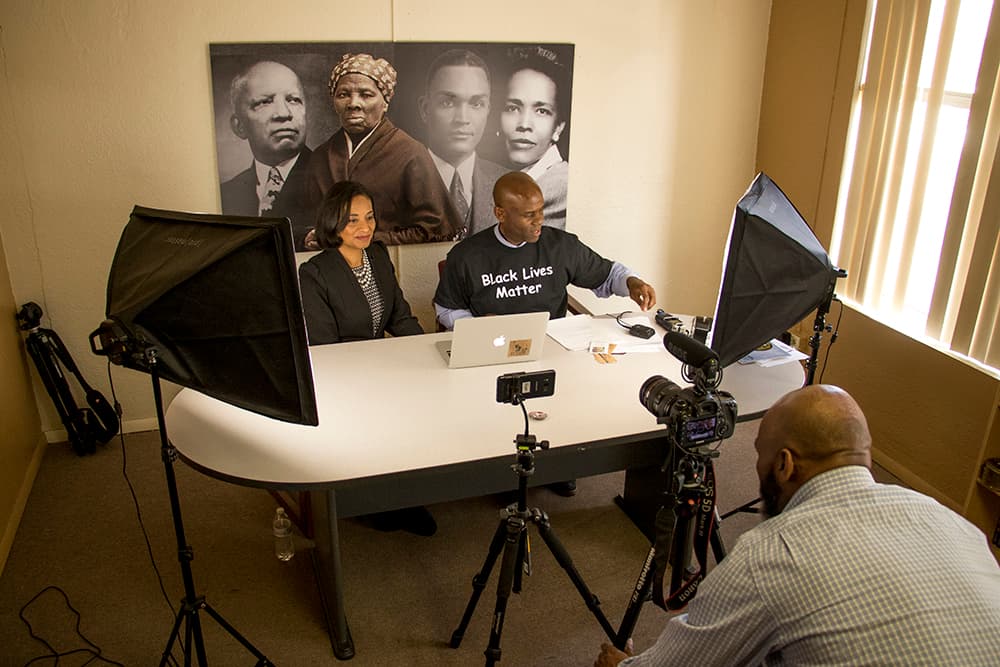
For Welton Street Café owner Fathima Dickerson, it’s been tough to see the faces in the neighborhood change so dramatically in such a short time.
“It was more so a concern on whether we would stay in the neighborhood. Would our customers that moved out of the neighborhood still come because of all the changes? And the new face of Welton, do they want us here?” Dickerson asked.
New housing on Welton Street brings familiar challenges.
If Denver residents can agree on one thing, it's that housing is expensive and hard to find. Just like every other area of the city, Five Points is struggling to find ways to provide adequate housing.
The intensity of the real estate boom in Denver has made affordable housing in areas near downtown especially hard to find. Brooks says he’s doing everything he can to mitigate some of the harshest effects of Denver’s housing crunch, like displacement and gentrification, and noted that 500 affordable units that have been added to the area over the last several years.
Maedella Stiger remembers Welton once being an inviting place for those on the mid- to low-end of the income spectrum. She worries that the escalating price point for entrance into the neighborhood will eliminate that experience for Denverites going forward.
“Welton street was designed for low economic affordability. Most blacks not making that kind of money. When the people all lived there before, they were paying reasonable prices” Stiger said.
“I don’t like all the big buildings down here. They’re trying to turn it into like a Cherry Creek. But it’ll never be a Cherry Creek because as long as I’m on the board it's going to be Five Points and they’re going to see us walking down here.”
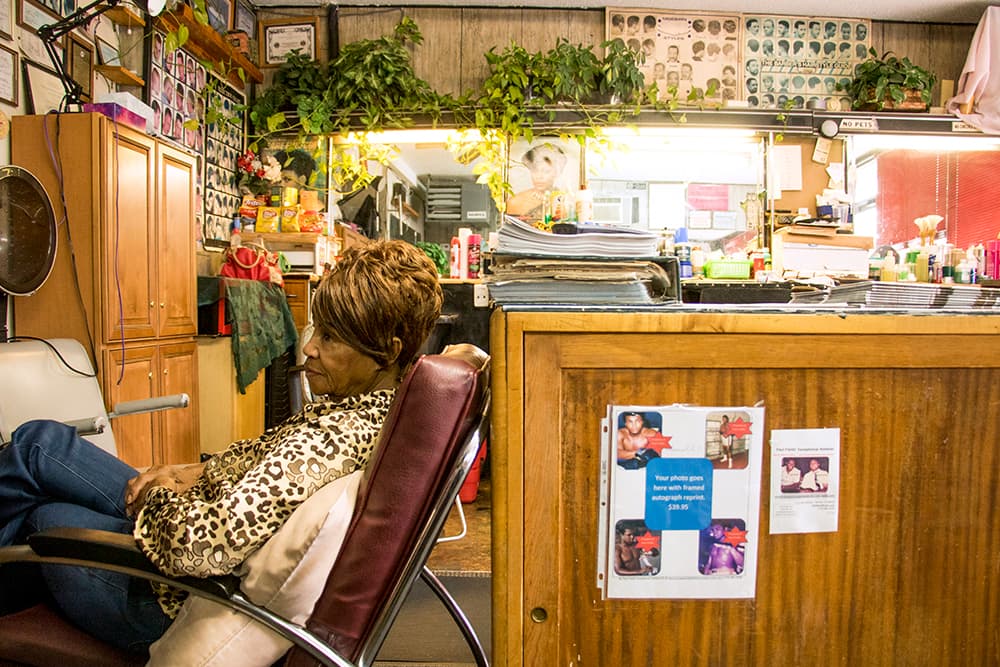
Developer Paul Books hopes to be sensitive to longtime residents who are being priced out of the neighborhood and says it’s a priority for him to include affordable housing in his developments. He believes tactics like providing micro-units and creating shared amenities will keep housing accessible for those looking to live in the area at a lower price point.
In action, that looks like the Wheatley building on 25th and Welton, which was completed in 2016 and has 82 units for rent, 18 of which are affordably priced.
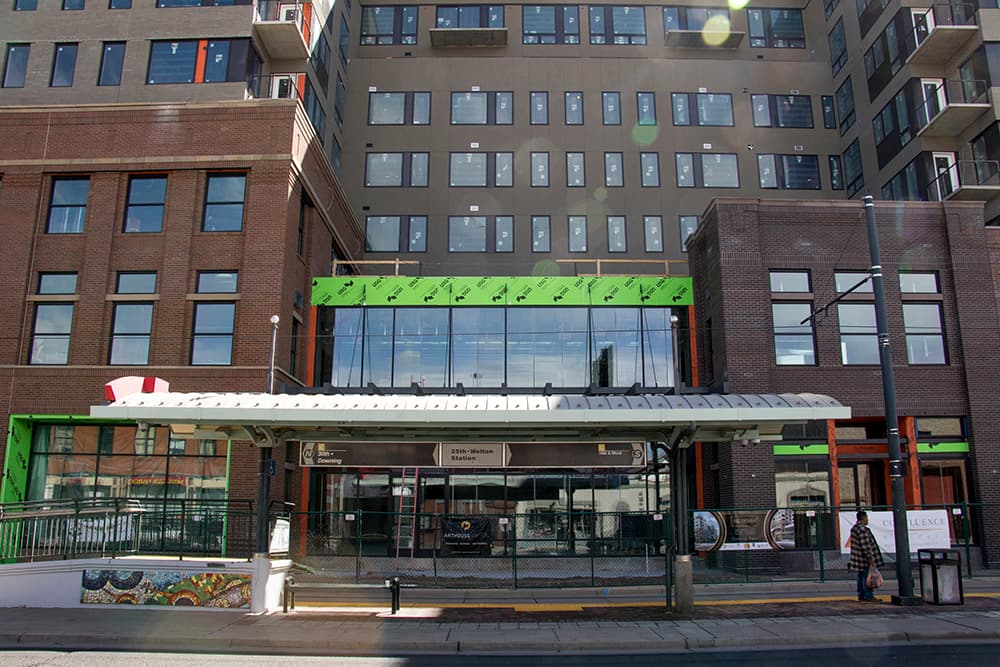
How does development fit in a historic center of black culture?
While all of Denver’s neighborhoods are learning best practices to handle the city’s rapid growth, Five Points' designation as a historic cultural district complicates how developers can approach the area in a respectful and nuanced fashion.
Due to historical restrictions on where black people could live in Denver, Welton Street became the hub of black life in the Mile High City. An abundance of talented artists, musicians and businesspeople inhabited the area, earning the neighborhood’s former moniker, the “Harlem of the West.”
Maedalla Stiger still fondly reminisces about a time when she never had to leave the neighborhood because all of her needs were centrally located.
“We didn’t have to go outside of the area because everything was here. Barbers, bankers, beauticians, eateries, churches, musicians,” she said. “Back in the day, you couldn’t be in a bad mood. The streets were just packed and you’d hear music coming from all the buildings.”
Like many other urban, minority-dominant sections of the country, Welton Street experienced issues of blight and urban decay that depreciated the value of the real estate and gave rise to negative perceptions of the area.
“The Cultural Center came about during the times of gangs and violence. I know when people said 'Don’t go to Five Points,'” Fard said.
Books was initially concerned about unsavory activities taking place on the strip, and when the area’s Business Improvement District (BID) began, they suggested deploying security guards and equipping street lights with halo cameras.
In 2017, Books had a conversation with Denver Police in which the department assured him things would get better after May. That month, massive federal gang sweep that resulted in a 52-person indictment of Denver’s Eastside Crip gang, many of whom resided in the Five Points area. Consequently, the BID began to advocate for community-friendly policing methods like naming block captains.
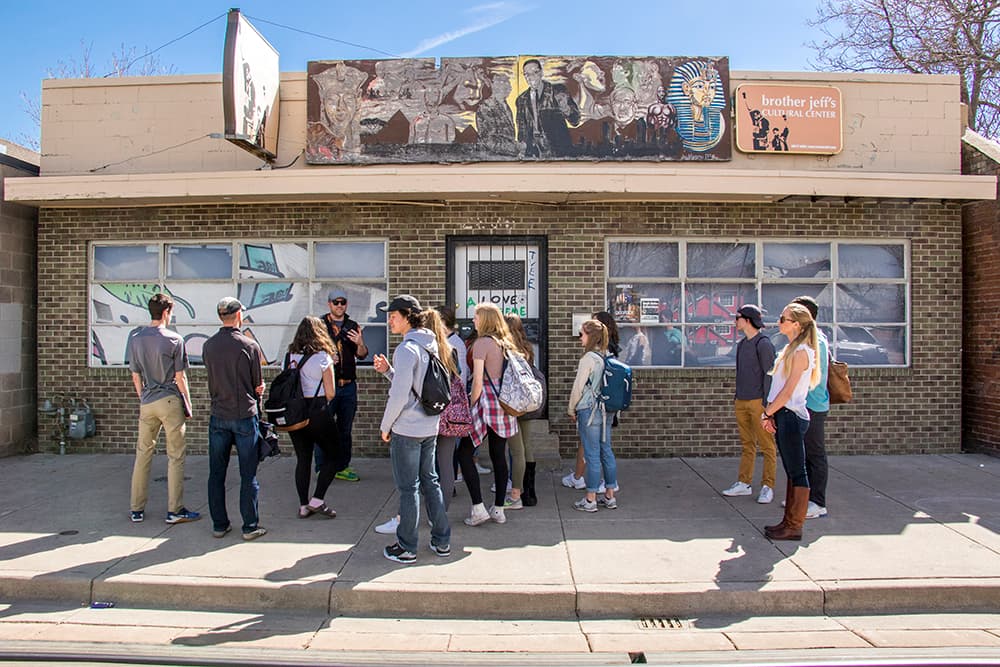
So what’s the future for Welton Street? It's complicated.
Developers are tasked with the challenge building in a “hip,” “up-and-coming” neighborhood without completely gutting its original culture, and making it clear that these “improvements” are not made to only attract certain types of people.
This is a conundrum Brooks wrestles with often, and he'd like the community to continue to embrace the changes.
“I believe people have to believe that whatever development is happening is happening for the community and not for somebody else,” he said.
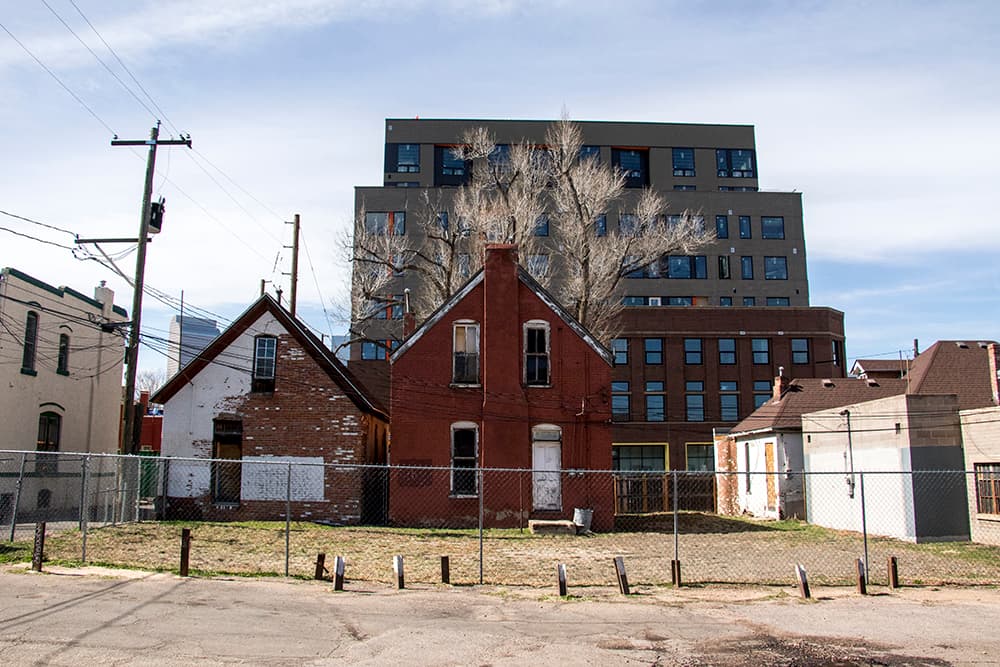
He says maintaining the original essence of Five Points is a high priority as they continue their work. Noting that for him "it starts with that African American base" as he looks forward to activating all of the historic storefronts — storefronts he hopes will be occupied by local, black-owned businesses.
“What I think that will do is differentiate this area. This could be truly different, unique, a true melting pot,” Books said.
Tributes to the history of Welton Street linger everywhere in his planning and function as a way to intertwine new aspects of the neighborhood with the history of the community. For example, the recently completed Lydian apartment building that has 129 apartments, 15,000 square feet of office space and close to 10,000 square feet of retail space is named after a jazz scale.
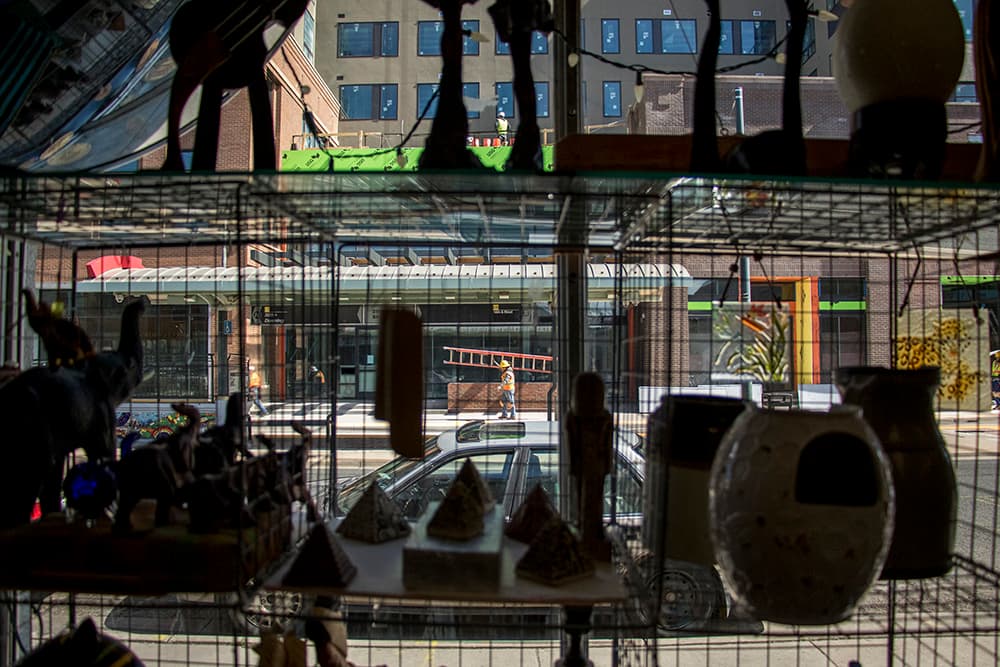
Fard feels symbolic gestures like that are insufficient and may in fact further reduce the black influence on Welton Street.
“They are not experiencing a black community anymore, they are experiencing an extension of Cheesman, Cherry Creek. They’re experiencing a white, upper-echelon community,” he said.
Business owners like Cobbins would like to see the area remain diverse while encouraging a little more growth to spur on his success at Coffee at the Point. He feels that Books and his company, Palisade, have made considerable efforts to address the needs of the community.
"Some developers just move in and build what they want to build. Paul’s different. I've been in so community meetings where people are upset the development is not happening" he said.
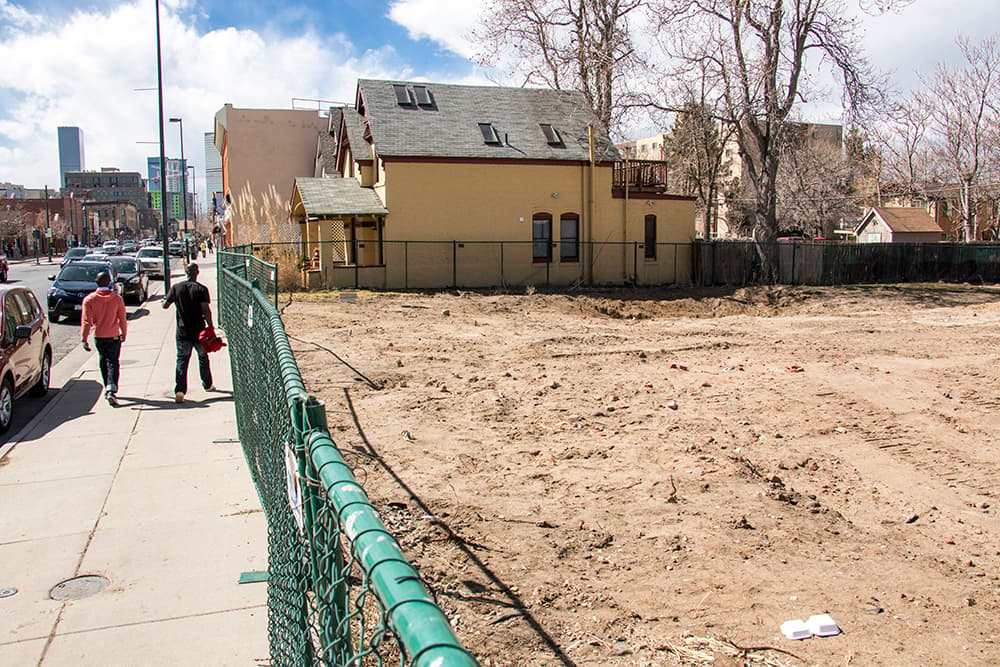
But for Fard, the fate of attractive neighborhoods like Five Points is a foregone conclusion and the future looks bleak.
“There’s unwanted, rampant development in affluent white communities. If they can’t stop it with all of their resources, why do people think that black and brown people that have been denied access to those resources can?” Fard asked.
“People who think black people are going to inhabit Five Points are delusional. Property values are rising, and the property has been purchased at rock bottom prices."
Councilman Brooks has a more optimistic view of Welton Street: “A place where you come and you could see what happened in the '40s, '50s. You are intimately aware of the history of Welton. You’re also aware it's a place for the residents now and residents in the future. It's an inclusive place.”
